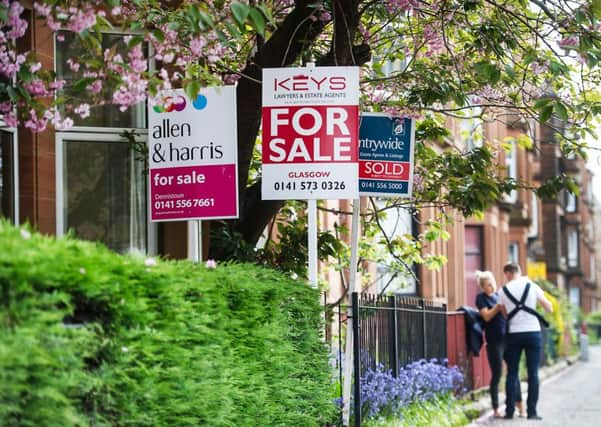David Alexander: The property pledges that will get my vote
This article contains affiliate links. We may earn a small commission on items purchased through this article, but that does not affect our editorial judgement.


She went viral after being caught unaware of Theresa May’s announcement of the vote by a BBC TV reporter. “You’re joking? Not another one!” was her astonished response.
This latest vote will take place within a year of the EU referendum, which was just 13 months after David Cameron’s election of 2015 (and less than nine months after the Scottish independence referendum) so who can blame Brenda?
Advertisement
Hide AdAdvertisement
Hide AdLike most individuals, I keep my political views to myself, but these inhibitions are not shared over how politics affects the housing market.
Even though this latest election is for Westminster, not Holyrood, top of my “property manifesto” would be a pledge to abolish land and buildings transaction tax (LBTT).
The failure of this flawed piece of legislation was highlighted just last week, paradoxically, by a panel of experts commissioned by the Scottish Government. A Review of Tax Revenue Forecasting Models for the Scottish Housing Market by London-based Alma Economics described the methodology used by ministers as “ill-suited for scenario analysis and fiscal impact costing”.
Yet this review should have been unnecessary because prior to the legislation being passed, the Scottish Government was warned repeatedly by property professionals here in Scotland of the likely outcome – a shortfall of £800 million a year in tax intake (compared to the predecessor, stamp duty) and the top end of the housing market almost at a complete halt.
But the consequences have gone further, because with the high tax rate of LBTT stymying sales in the likes of the New Town, Park Circus and favoured rural and coastal locations, the result has been a lessening of options for home-owners wishing to trade up from the middle-market. This might even ripple out to affect turnover of sales of starter and lower-priced properties, even if the LBTT on these is lower than it was under stamp duty.
Advertisement
Hide AdAdvertisement
Hide AdSo what needs to be done? Well, to start with, the government should amend the rates of LBTT to bring those in Scotland into line with south of the Border so that the levy on the transaction of a buy to let flat in Glasgow is no greater than a similar property in Manchester or Leeds.
Hopefully, when more money starts pouring into the Holyrood coffers, as it almost certainly will, SNP ministers will recognise their folly and introduce a new form of property sales tax, which creates a proper balance between giving some advantage to those at the lower end of the market while making sure it does not kill the goose that lays the golden eggs.
Unlike LBTT, income from property is still the preserve of Westminster, so my property manifesto would also include a pledge to stop bashing landlords over the head with even more legislation that further diminishes any remaining tax advantages of residential property investment.
The new tax year marked the beginning of the end of tax relief on buy-to-let mortgage interest. While the sector is robust enough to cope, this should be a line in the sand; any more legislation of this type and there could be a serious haemorrhaging of rental stock.
Critics of the rental sector would no doubt welcome this by claiming that with fewer buy-to-let investors in the market, competition would be reduced and the prospects of first-time buyers improved. To a certain extent that is true, but with home loan deposits of £10,000, £20,000 and even £30,000 putting owner-occupation beyond the reach of even relatively affluent young singles and couples, where are they going to live if there is a dearth of rental property and its conventional move-in costs of a month’s deposit and a month’s rent in advance?
Back to Mum and Dad, I suppose.
• David Alexander is managing director of DJ Alexander